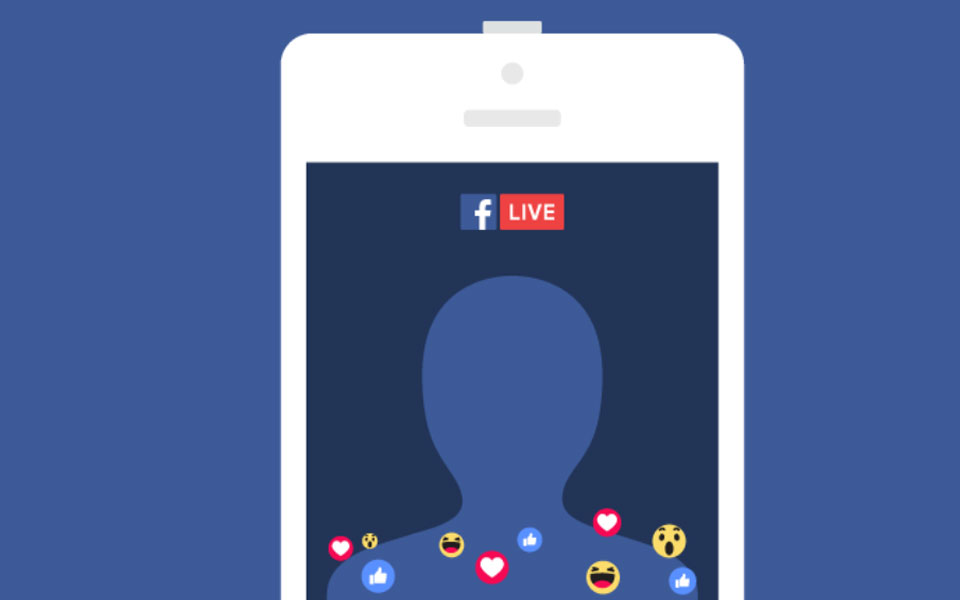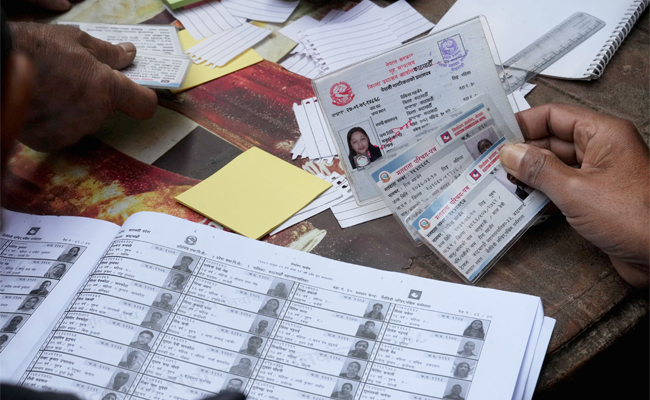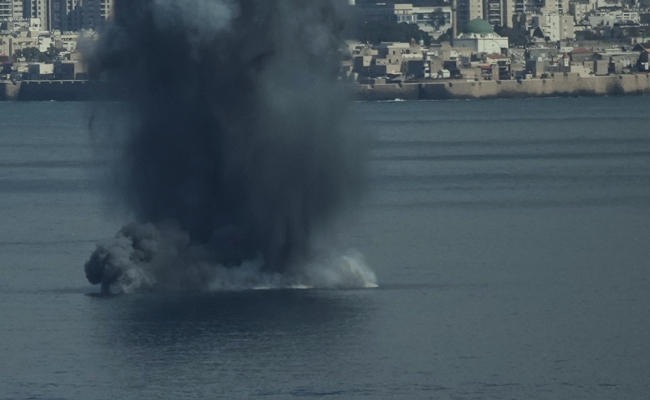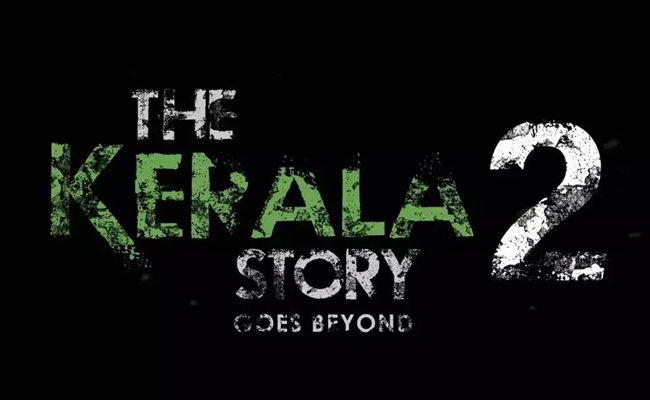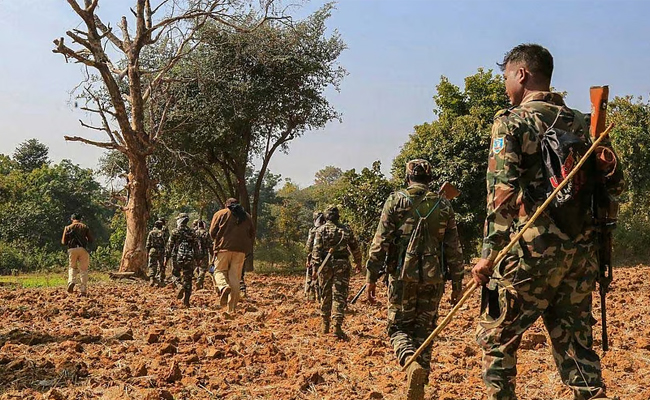San Francisco: Facebook on Friday said it is tightening live video streaming rules in response to the service being used to broadcast deadly attacks on mosques in New Zealand.
The Christchurch attacks -- carried out by a self-avowed white supremacist who opened fire on worshippers at two mosques -- claimed 50 lives.
Many people have "rightly questioned how online platforms such as Facebook were used to circulate horrific videos of the attack," chief operating officer Sheryl Sandberg said in an online post.
"In the wake of the terrorist attack, we are taking three steps: strengthening the rules for using Facebook Live, taking further steps to address hate on our platforms, and supporting the New Zealand community," she added.
Facebook is looking into barring people who have previously violated the social network's community standards from livestreaming on its platform, according to Sandberg.
The social network is also investing in improving software to quickly identify edited versions of violent video or images to prevent them from be shared or re-posted.
"While the original New Zealand attack video was shared Live, we know that this video spread mainly through people re-sharing it and re-editing it to make it harder for our systems to block it," Sandberg said.
"People with bad intentions will always try to get around our security measures." Facebook identified more than 900 different videos showing portions of the streamed violence.
The social network is using artificial intelligence tools to identify and remove hate groups in Australia and New Zealand, according to Sandberg.
Those groups will be banned from Facebook services, she said.
Facebook this week announce it would ban praise or support for white nationalism and white separatism as part of a stepped-up crackdown on hate speech.
The ban will be enforced starting next week on the leading online social network and its image-centric messaging service Instagram.
"It's clear that these concepts are deeply linked to organized hate groups and have no place on our services," the social network said in a statement.
Facebook policies already banned posts endorsing white supremacy as part of its prohibition against spewing hate at people based on characteristics such as race, ethnicity or religion.
The ban had not applied to some postings because it was reasoned they were expressions of broader concepts of nationalism or political independence, according to the social network.
Facebook said that conversations with academics and "members of civil society" in recent months led it to view white nationalism and separatism as linked to organized hate groups.
People who enter search terms associated with white supremacy will get results referring them to resources such as Life After Hate, which focus on helping people turn their backs on such groups, according to Facebook.
Amid pressure from governments around the world, Facebook has ramped up machine learning and artificial intelligence tools for finding and removing hateful content.
"We are deeply committed to strengthening our policies, improving our technology and working with experts to keep Facebook safe," Sandberg said.
"We must all stand united against hate and work together to fight it wherever and whenever it occurs."
Let the Truth be known. If you read VB and like VB, please be a VB Supporter and Help us deliver the Truth to one and all.
Kathmandu (PTI): Nepal which went to polls on Thursday, the first since a violent Gen Z protest that toppled the K P Sharma Oli-led government last year, recorded a turnout of about 18 per cent till noon, according to the Election Commission.
The Election Commission said that around 3.16 million people have exercised their franchise till 12 pm, with the voting process going smoothly.
Voting is ongoing smoothly across the country with minor incidents in a very few places, Election Commissioner Sagun Shumsher Rana was quoted as saying by the Kathmandu Post.
More than 18.9 million eligible Nepalese are exercising their franchise to elect the 275-member House of Representatives from among the 3,406 candidates vying for 165 seats under direct voting, and 3,135 candidates vying for 110 seats through proportionate voting.
The voting started at 7 am and will conclude at 5 pm. The counting will start immediately after the ballot boxes are collected.
Nepal Police confirmed that apart from minor disagreements at a few locations, no serious problems had occurred.
Police spokesperson Abi Narayan Kafle said, “Some jostling is expected during elections, but no major issues have arisen. We are ensuring that the voting process remains peaceful throughout the day.”
"Voting started in all the constituencies, including the southern plains, hilly area and the mountain region at 7 am," Election Commission spokesperson Narayan Prasad Bhattarai said.
“The election started in a peaceful environment across the country,” he added.
ALSO READ: Nepal records over 10% turnout till 11 am in first election since govt-toppling Gen Z protests
Addressing a press meet here on the eve of the polls, Acting Election Commissioner Ram Prasad Bhandari on Wednesday had said that all preparations for the election had been completed and urged voters to participate actively and enthusiastically in the democratic exercise.
In Kathmandu, the weather was fine, sky was clear and people were enthusiastically queuing up to cast their votes.
Interim Prime Minister Sushila Karki cast her vote from Kathmandu-5 constituency at Dhapasi on the outskirts of Kathmandu on Thursday morning.
"I have cast my vote, I am happy that people are casting their votes, participating in the general election," she said.
Nepali Congress president Gagan Thapa cast his vote from Kathmandu-4 constituency in Maitidevi in the morning.
"This election was needed to bring the Constitution back on the right track," he said.
Thapa, the prime ministerial candidate of Nepali Congress, is contesting the election from Dhanusha-4 constituency.
Rastriya Swotantra Party (RSP) president Ravi Lamichhane cast his vote from Chuchepati area on the outskirts of Kathmandu.
Prime ministerial candidate of RSP and former Kathmandu mayor Balendra Shah ‘Balen’ cast his vote from Gairegaun, Kathmandu. He is contesting the election from Jhapa-5.
Ousted premier Oli cast his vote from Balkot in Bhaktapur district.
The Gen Z youth, through their two-day intensified protests on September 8 and 9, ousted Prime Minister Oli, chair of the Communist Party of Nepal (Unified Marxist–Leninist) -- CPN-UML -- who was heading a coalition government with the backing of Nepali Congress that enjoyed nearly two-thirds majority support.
The CPN-UML, led by ousted PM Oli, has emerged as the hardliner force. Though former premier Pushpa Kamal Dahal 'Prachanda'-led NCP claims to have addressed the issues raised by the Gen Z, they have not handed over the party leadership to the younger generation.
Rastriya Swotantra Party (RSP), led by its chair Ravi Lamichhane and senior leader Balendra Shah, and the reformed Nepali Congress, led by Gagan Thapa, are voicing the issues raised by the Gen Z, while CPN-UML and Nepali Communist Party, led by ‘Prachanda’, are known as the traditional forces.
Ujyalo Nepal Party, led by Kulman Ghising, and Shram Shakti Party, led by former Dharan Mayor Harka Sampang, are also emerging forces but enjoy support in limited pockets only.
After Oli's ouster, President Ramchandra Paudel dissolved the House of Representatives on September 12 and appointed Sushila Karki as the caretaker PM.
The major issues raised by Gen Z are anti-corruption, good governance, an end to nepotism, generational change in political leadership, etc.
Starting Wednesday, Nepal has declared a three-day holiday for the polls.
There are a total of 10,967 polling booths and 23,112 polling centres, the Election Commission data showed. As many as 65 political parties are taking part in the election.

